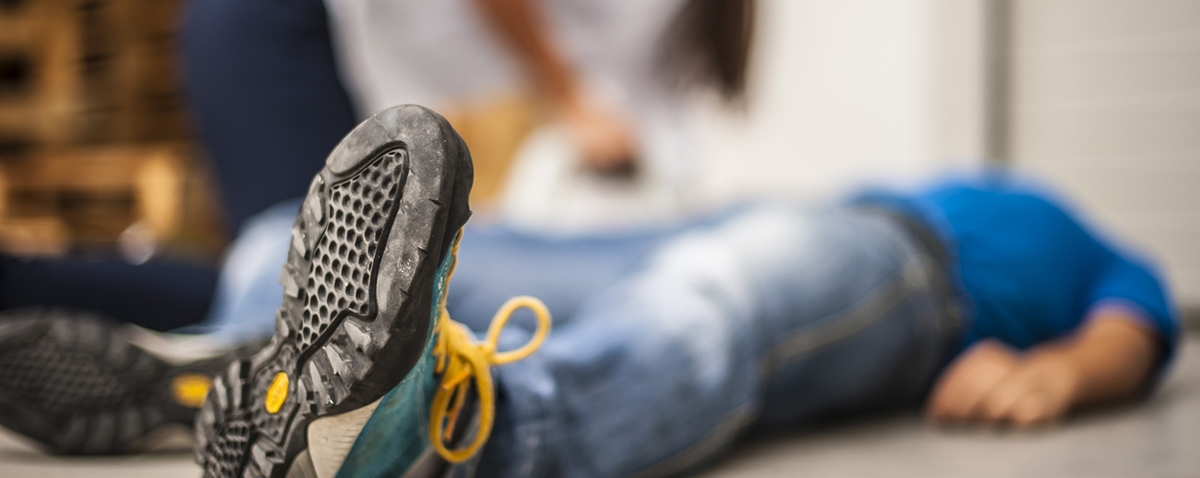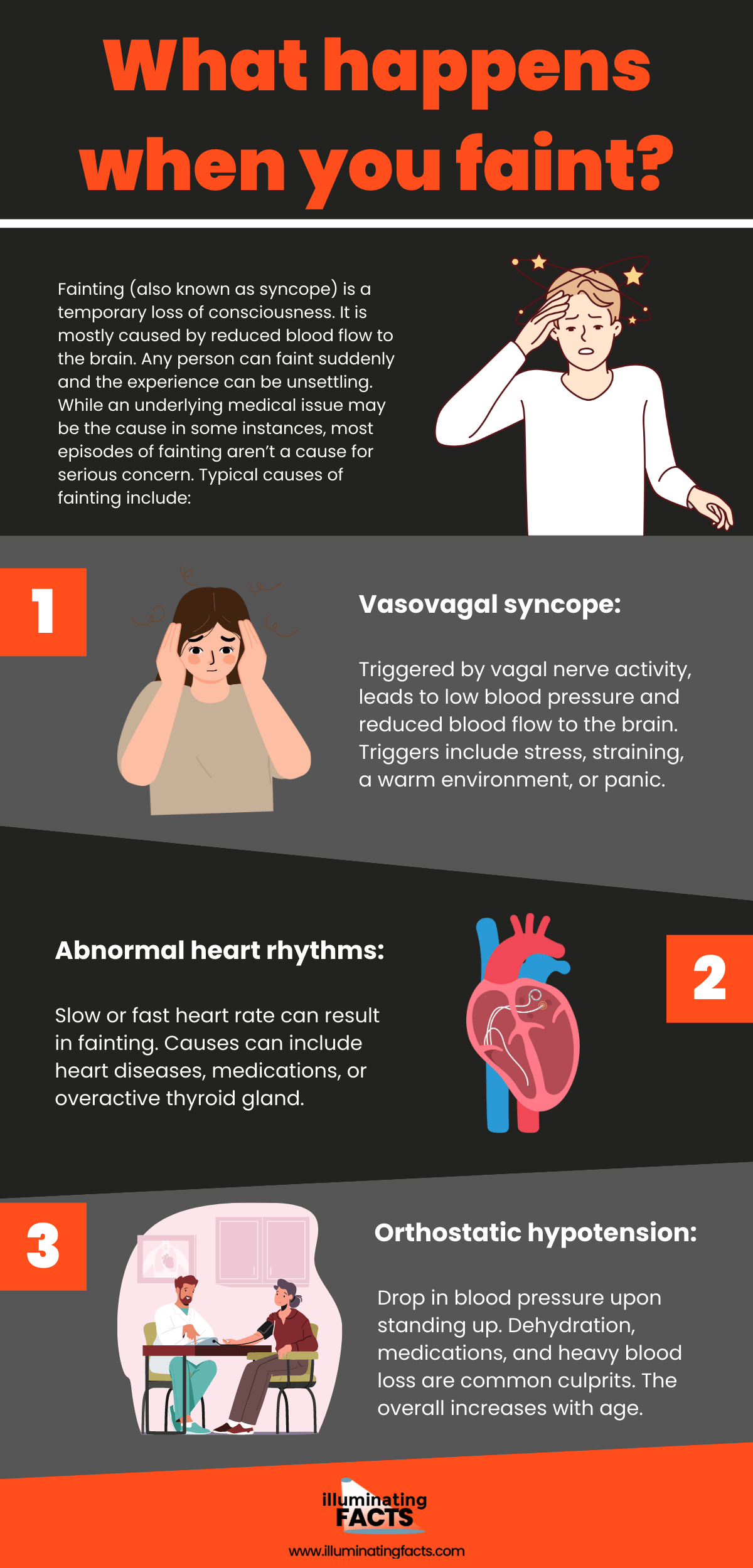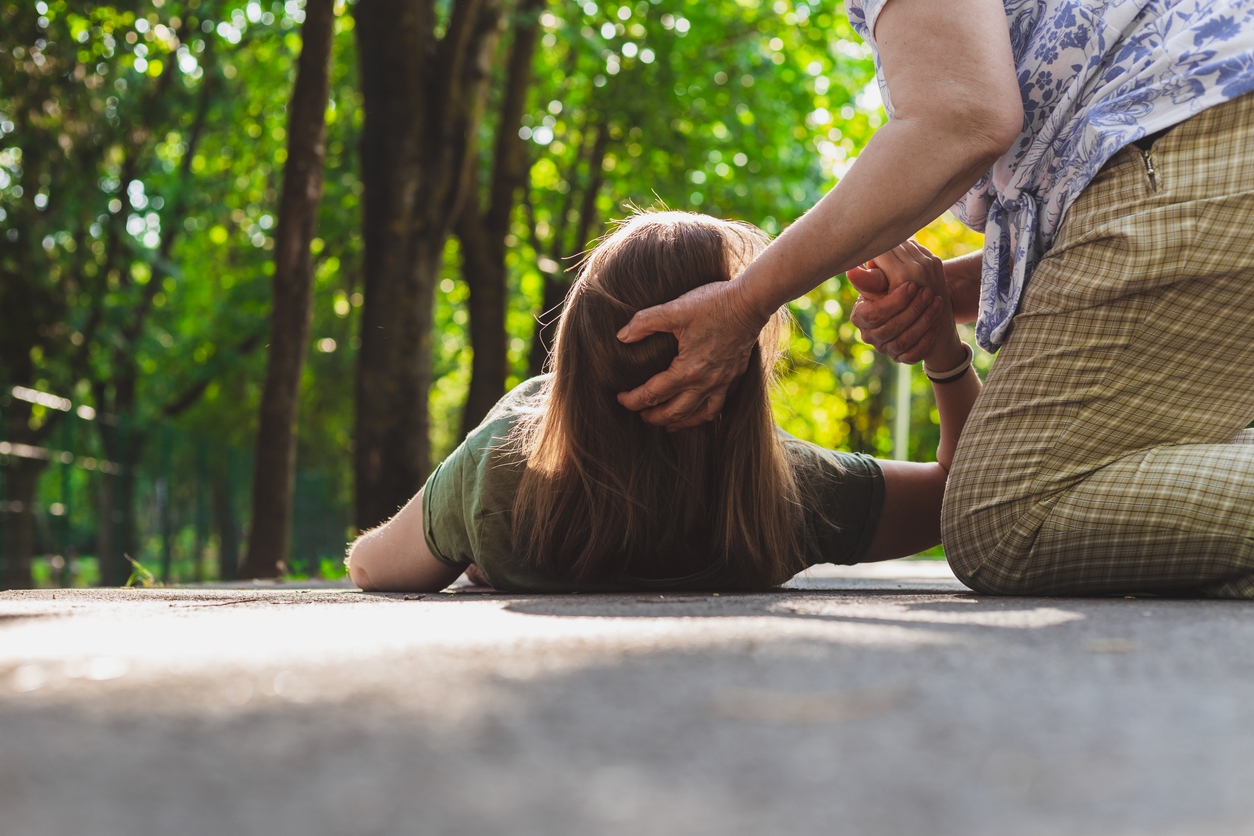Fainting is unsettling for most people. It can happen suddenly, and we aren’t always aware of preventive measures. Sometimes, it’s nothing to worry about and can occur due to temporary factors like dehydration or exhaustion. Other times, it may signal a medical condition. This post covers the causes of fainting, preventive measures, and steps to take when someone faints. Read on to learn how to tackle this condition whether it happens to you or someone else.
What happens when you faint?
Fainting (also known as syncope) is a temporary loss of consciousness. [1] It is mostly caused by reduced blood flow to the brain. Any person can faint suddenly and the experience can be unsettling. While an underlying medical issue may be the cause in some instances, most episodes of fainting aren’t a cause for serious concern. Typical causes of fainting include:
Vasovagal syncope: triggered by vagal nerve activity, leads to low blood pressure and reduced blood flow to the brain. Triggers include stress, straining, a warm environment, or panic.
Abnormal heart rhythms: slow or fast heart rate can result in fainting. Causes can include heart diseases, medications, or overactive thyroid gland.
Orthostatic hypotension: drop in blood pressure upon standing up. Dehydration, medications, and heavy blood loss are common culprits. The overall increases with age.
In most cases, no serious underlying cause is found, but falls during fainting can result in injuries. It’s important to take preventive measures such as staying hydrated, avoiding triggers, and being cautious during activities. Pregnant individuals are also at increased risk. [2] Seek medical attention to identify any underlying health issues and take appropriate action.
Warning signs
Fainting often has warning signs that can manifest a few seconds before the event:
- Dizziness or feeling lightheaded can be an early indication.
- Sudden sweats or feeling cold may also be experienced before fainting.
- Vision changes, such as blurring or spotting, may occur as a warning sign.
- Nausea could be a symptom that precedes fainting.
- Ringing in the ears may be noticed before fainting occurs.
- Ashy or pale appearance of the skin can be a warning sign.
- Rapid heart rate or palpitations prior to the episode.
At all times, it is important to pay attention to these warning signs. [3] If you or someone else experiences them, take measures like lying down or getting help from a trusted adult. Educating yourself on fainting can help minimize its impact.
Causes
Possible causes of fainting can vary, and while you may have learned about the main ones, it’s important to be aware that there could be other factors at play. Here are some potential causes of fainting:
- Certain medications taken for reducing high blood pressure, like calcium channel blockers, water pills and ACE inhibitors.
- Nitrates for heart disease, antihistamines for allergies, and opioids for pain can also result in fainting.
- A neurologic condition, such as a seizure disorder or stroke.
- A sudden drop in blood sugar, as may occur in a person with diabetes.
- Unknown reasons, which are the cause behind 50 percent of fainting episodes
- Dehydration or overheating.
In addition to these possible causes, there are also activities that can trigger fainting due to their impact on the body:
- Standing up too quickly.
- Using alcohol, marijuana, or illegal drugs.
- Skipping several meals.
- Hyperventilating (breathing too fast).
- Working, playing, or exercising too hard, especially in hot conditions.
It’s crucial to be mindful of these potential causes and take appropriate precautions to avoid fainting episodes. If you experience fainting or notice someone else exhibiting warning signs, it’s important to seek medical attention and consult a healthcare professional for proper evaluation and guidance.
Prevention
To avoid an episode of fainting, you need to be aware of potential triggers and the immediate steps to take. Consider doing the following: Get up slowly from a lying-down or seated position to prevent a sudden drop in blood pressure that could lead to fainting. [4] Plus, convey history of sensitivity or fainting to medical procedures to your doctor, so they can take appropriate precautions during medical appointments.
It’s also crucial to eat a well-balanced diet to maintain stable blood sugar levels. And drink 8 glasses of water per day to prevent dehydration as it increases the risk of fainting.
If you think that fainting can harm your wellbeing, take these steps:
- Find a safe place to sit down and put your head between your knees to improve blood flow to your brain.
- Consider lying down to avoid getting injured or falling.
- Wait until you feel better before performing any activity that involves standing.
Additionally, talk to your healthcare provider for further guidance on prevention strategies.
When is it serious?
Fainting episodes are often not a cause for concern. However, some cases may indicate an underlying health issue. It’s crucial to seek medical attention if you experience any of the following:
- Sustain an injury from a fall during a fainting episode.
- Faint while engaging in physical activity, such as exercising.
- Have repeated or frequent fainting spells.
- Take several minutes to regain consciousness after fainting.
Plus, if you faint and experience any of the following symptoms, consult with a healthcare provider:
- Blurry vision.
- Chest pain.
- Confusion or difficulty speaking.
- Irregular heartbeat.
- Loss of control with urination or bowel movements.
- Shortness of breath.
Furthermore, if you are pregnant, have diabetes, a history of heart or blood pressure issues, or a family history of sudden death, it’s important to report any loss of consciousness to your healthcare provider for further evaluation and appropriate medical guidance.
What to do when someone faints?
If you witness someone fainting, get blood to flow to their head by raising their feet above their heart level. [5] Alternatively, ask them to put their head between their knees. You’ll also want to open any restrictive clothing (tight collars, belts, etc.) to allow for better breathing. Keep the individual sitting or lying down for at least 10 to 15 minutes in a cool, quiet place. And offer them a cool drink of water, if available.
It’s also a good idea to learn about first aid tips for unconsciousness to provide appropriate care. But if the person is not breathing, call 911 or your local emergency services immediately for professional medical assistance. [6] Remember to stay calm and provide comfort to the person until help arrives.
Interesting facts
- Fainting can be a response to certain stimuli, like intense pain, laughter, or extreme fear
- Some animals, such as goats and rabbits, can also faint in response to fear or stress
- In some cultures, fainting has been associated with religious or spiritual experiences
- Fainting can be a common occurrence in certain individuals such as professional athletes
Conclusion
By now, you should have learned everything you need to know about fainting. As you can see, it is not always a serious cause of concern, but can sometimes occur due to a medical condition. In either case, there are preventive measures you can take to minimize its impact and safeguard your well-being.
To recap, here’s what was discussed throughout this article:
- Fainting can occur due to temporary causes, but may indicate a serious issue in certain instances
- Before and during fainting, your body experiences increased vagal nerve activity and reduced blood flow to the brain
- Pale skin, dizziness, and nausea are some warning signs that a fainting episode is about to hit
- People can faint due to a neurological condition and for unknown reasons
- Lying down and sitting in a safe place are some of the best ways to prevent injuries during fainting
With these tips, you should be able to effectively tackle any future episodes of fainting.
References:
- Syncope: Symptoms, causes, treatments. (n.d.). Cleveland Clinic. https://my.clevelandclinic.org/health/diseases/17536-syncope
- Fainting during the first trimester of pregnancy may raise risk of problems for mom and baby. (2019, May 21). American Heart Association. https://newsroom.heart.org/news/fainting-during-the-first-trimester-of-pregnancy-may-raise-risk-of-problems-for-mom-and-baby
- Lisa Esposito. (2022, May 3). The Facts About Fainting Spells. https://health.usnews.com/. https://health.usnews.com/health-care/patient-advice/articles/the-facts-about-fainting-spells
- How to prevent fainting. (2002, January 1). WebMD. https://www.webmd.com/brain/understanding-fainting-prevention
- Pietrangelo, A. (n.d.). What causes fainting?Healthline. https://www.healthline.com/health/fainting#what-to-do-when-someone-faints
- Fainting: First aid. (2021, February 16). Mayo Clinic. https://www.mayoclinic.org/first-aid/first-aid-fainting/basics/art-20056606





